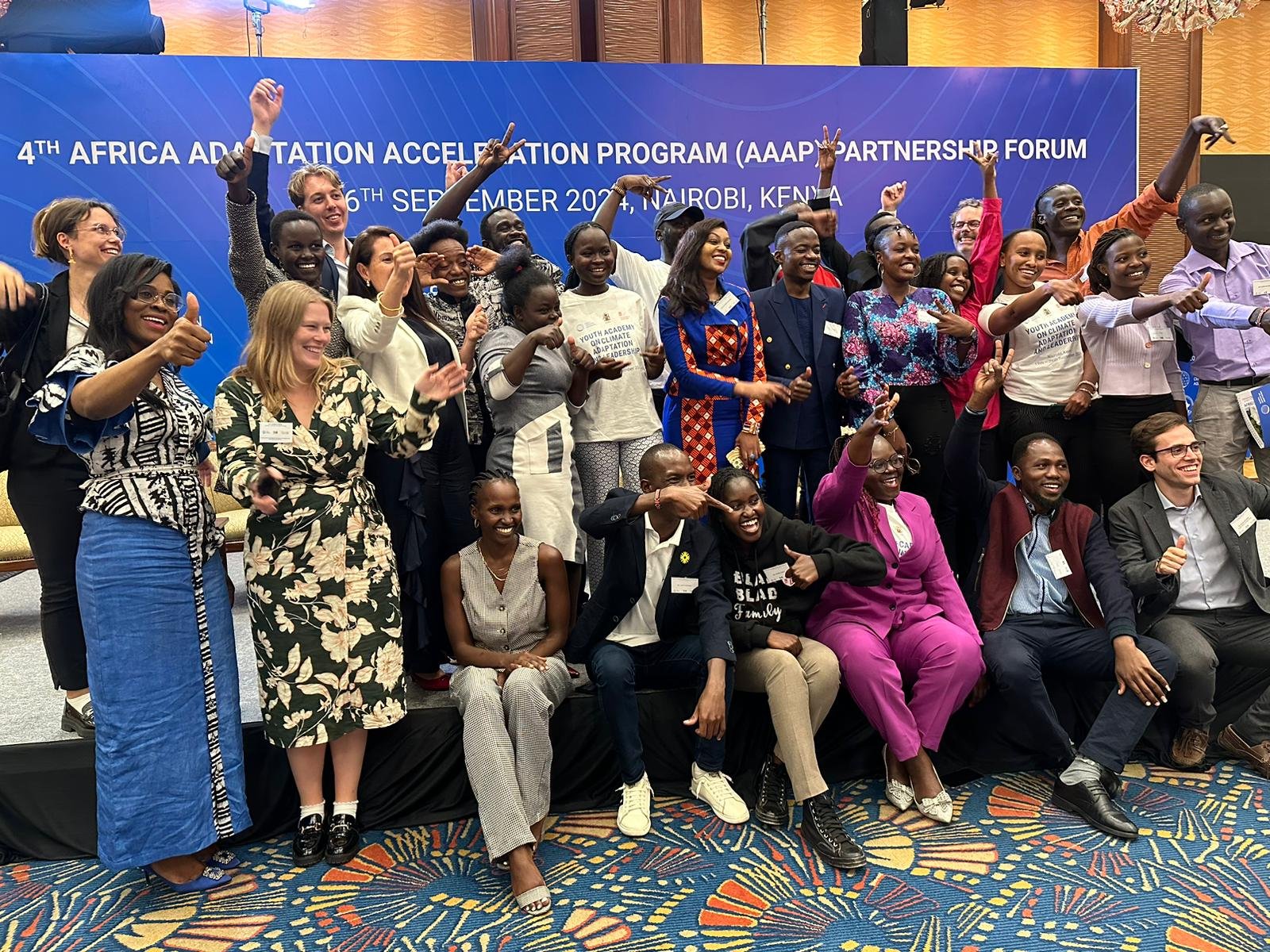#Youth4Soil Member in the First Cohort of the Youth Academy on Climate Adaptation & Leadership
From 19-26th September 2024, the inaugural cohort of the Youth Academy on Climate Adaptation & Leadership met in Nairobi, Kenya to strengthen their skills around youth leadership and climate adaptation.
The Academy was officially launched via a partnership between the Global Centre on Adaptation, the University of Nairobi, and the University of Groningen. The University of Nairobi hosted the 62 students, government officials, youth organizations, and other youth stakeholders who were selected to join the Academy. Among them was #Youth4Soil member Eliseus Bamporineza.
Eliseus Bamporineza is a dedicated youth advocate, climate activist, and writer based in Nairobi, Kenya. He is an East African Community Youth Fellow and Co-Founder of the Feed2Care charity, which addresses malnutrition and supports vulnerable communities. Eliseus is also a recipient of the African Leadership Academy-MasterCard Foundation Scholarship and one of the Youth Agrichampions 2024 at the Ban Ki-Moon Centre. He is a vocal champion of soil health through the #Youth4Soil initiative, advocating for climate-smart agriculture and sustainable land use. Eliseus has won several accolades, including the Policy Creation Challenge at the African Leadership Academy this year. As a writer and poet, he uses his work to inspire young people to protect the environment and foster inclusive communities. His upcoming poetry book, When Soil Speaks, continues his advocacy for environmental justice and soil conservation.
We asked Eliseus to share some of his reflections on the Academy and his next steps for youth advocates for global soil health.
Q: What made you want to join the Youth Academy on Climate Adaptation & Leadership?
A: I have always been passionate about climate action, especially when it comes to sustainable land management and the intersection between climate change and food systems. Joining the Youth Academy was an opportunity to broaden my understanding and connect with like-minded individuals who are committed to climate adaptation. I also wanted to explore how climate leadership can center soil health, which is an area of my advocacy through the #Youth4Soil initiative.
Q: What skills did you develop? How will you apply them to your efforts going forward?
A: I gained valuable leadership and advocacy skills, particularly in policy engagement and systems thinking. The sessions on climate justice and community adaptation strategies deepened my knowledge of how local communities can be empowered to drive climate action. Going forward, I will use these skills in my projects, such as the Feed2Care initiative to advocate for climate-smart agricultural practices and youth inclusion in policy-making processes.
Q: What was your favourite part of the experience?
A: My favourite part of the Academy was participating in the working groups focused on equipping us with leadership tools as trainers who will train youth, particularly in remote areas, on climate adaptation. It was incredible to collaborate on practical solutions that address the unique challenges faced by vulnerable communities. The group presentations on innovative climate adaptation projects were mind-blowing, showing just how much creativity and ingenuity young people can bring to the table. Networking with other youth from across Kenya was also a highlight—exchanging ideas and building partnerships made the experience both enriching and empowering.
Q: Did soil health come up in the conversation at the Academy? When and in what context?
A: Yes, soil health was an integral part of the discussions, particularly in the context of sustainable land use and food security. Our sessions included a discussion on regenerative agriculture, where we talked about how healthy soils are essential for climate resilience and mitigating the effects of extreme weather events. It aligned perfectly with my work on the #Youth4Soil initiative, which advocates for protecting soil ecosystems.
Q: Why should climate education and advocacy centre youth participation? How do you think this could be scaled?
A: Youth participation is critical because young people will bear the long-term impacts of climate change. Empowering them with the right tools and knowledge ensures that future generations are equipped to lead adaptation efforts. To scale youth participation, we need to create more platforms for youth leadership in climate negotiations and policy-making, particularly community-based programs that include those youth in remote areas - the unprivileged ones who don’t even own a button phone, and expand access to funding and resources for youth-led initiatives.
Q: What’s next for you and your work?
A: I am focusing on the upcoming launch of my poetry book, When Soil Speaks, which will support the #Youth4Soil campaign. My goal is to continue advocating for soil health, food security, and environmental sustainability across Africa.
Q: Anything else you want to share?
A: I would like to encourage other young people to take ownership of their role in climate action. We can shape the future, but it requires commitment, collaboration, and a willingness to challenge the status quo which requires us to wisely navigate power dynamics. Soil health, in particular, is something we often overlook, but it’s the foundation of life. We must take care of it for a sustainable future. I am glad the Coalition of Action for Soil Health is leading the way through its Soil Health Advocacy program.







